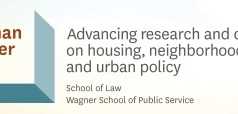WASHINGTON, DC – November 3, 2011 – (RealEstateRama) — The U.S. Department of Housing and Urban Development (HUD) and the U.S. Department of the Treasury today released the October edition of the Obama Administration’s Housing Scorecard – a comprehensive report on the nation’s housing market. The latest housing data offer continued mixed signals as new home sales rose compared to August, but were still slightly down from the prior year. Mortgage defaults and foreclosure sales continued a downward trend as more homeowners were able to secure mortgage relief. However, foreclosure completions ticked slightly upward in September after months of decline.
Also, beginning this month the Housing Scorecard will capture data on the Administration’s Home Affordable Refinance Program (HARP). The Federal Housing Finance Agency recently announced efforts to ease refinance guidelines for homeowners. The full report is available online at www.hud.gov/scorecard.
-
The Administration’s recovery efforts continue to help millions of families deal with the worst economic crisis since the Great Depression. More than 5.3 million modification arrangements were started between April 2009 and the end of September 2011 – including more than 1.7 million HAMP trial modification starts, more than 1,064,000 FHA loss mitigation and early delinquency interventions, and more than 2.5 million proprietary modifications under HOPE Now. Many of these modifications are a direct result of the standards and processes the Administration’s programs have established. While some homeowners may have received help from more than one program, the total number of agreements offered continues to more than double the number of foreclosure completions for the same period (2.3 million). More than 850,000 homeowners have received a HAMP permanent modification to date, with a median payment reduction of over $520 each month.
-
Even as new delinquencies continue to fall, eligible homeowners entering HAMP have a high likelihood of earning a permanent modification and realizing long-term success. Eighty percent of eligible homeowners entering a HAMP trial modification since June 1, 2010 received a permanent modification, with an average trial period of 3.5 months. After six months in the program, more than 94 percent of homeowners remain in their HAMP permanent modification. Homeowners in HAMP permanent modifications have saved an estimated $8.8 billion to date. View the September MHA Servicer Performance Report.















